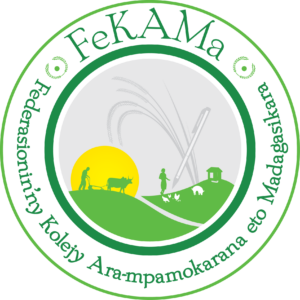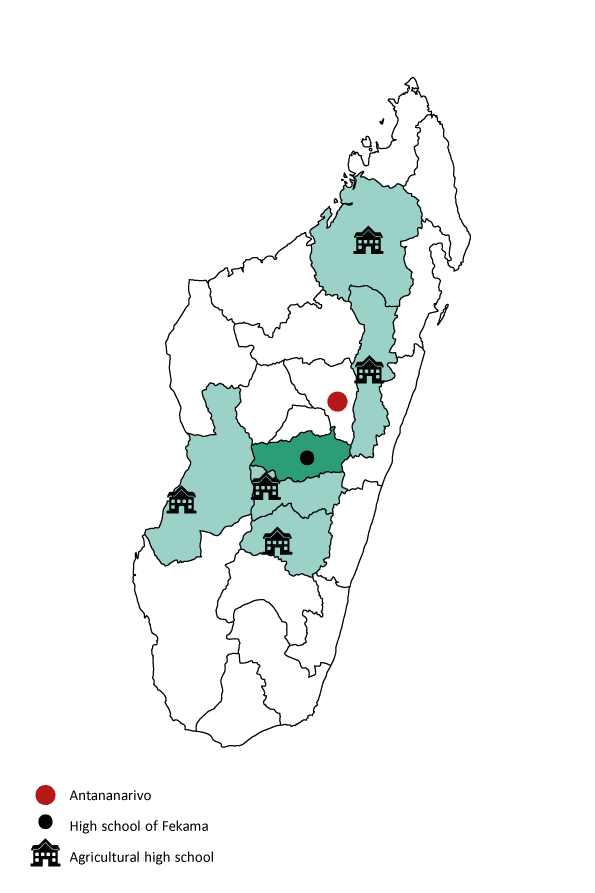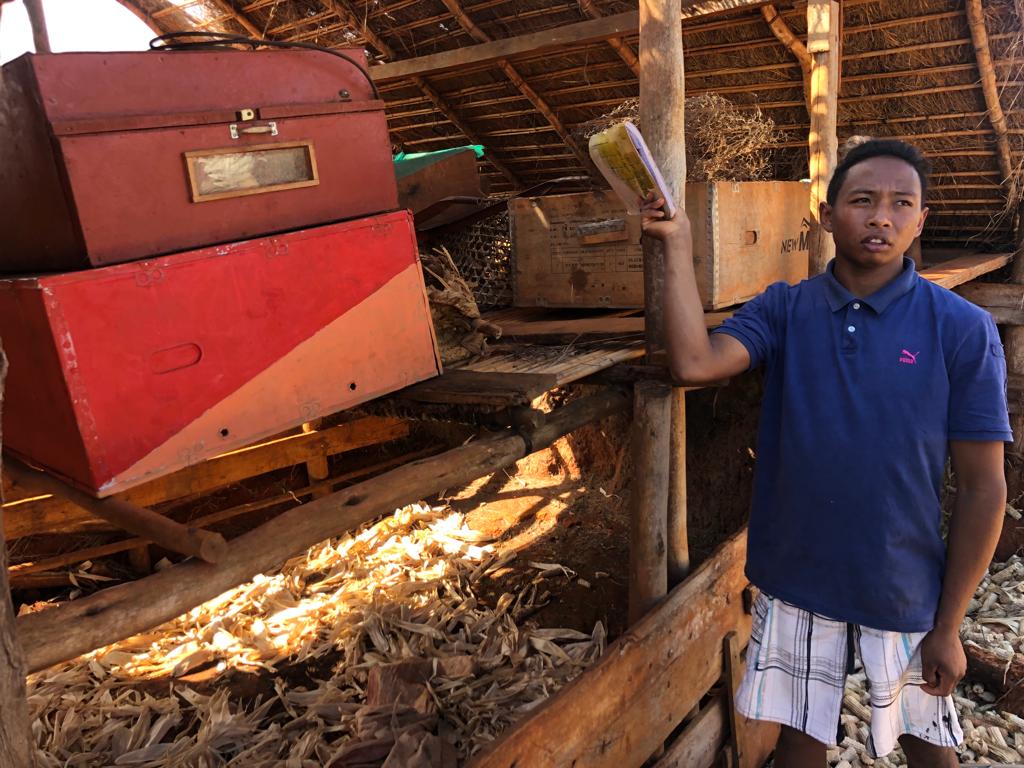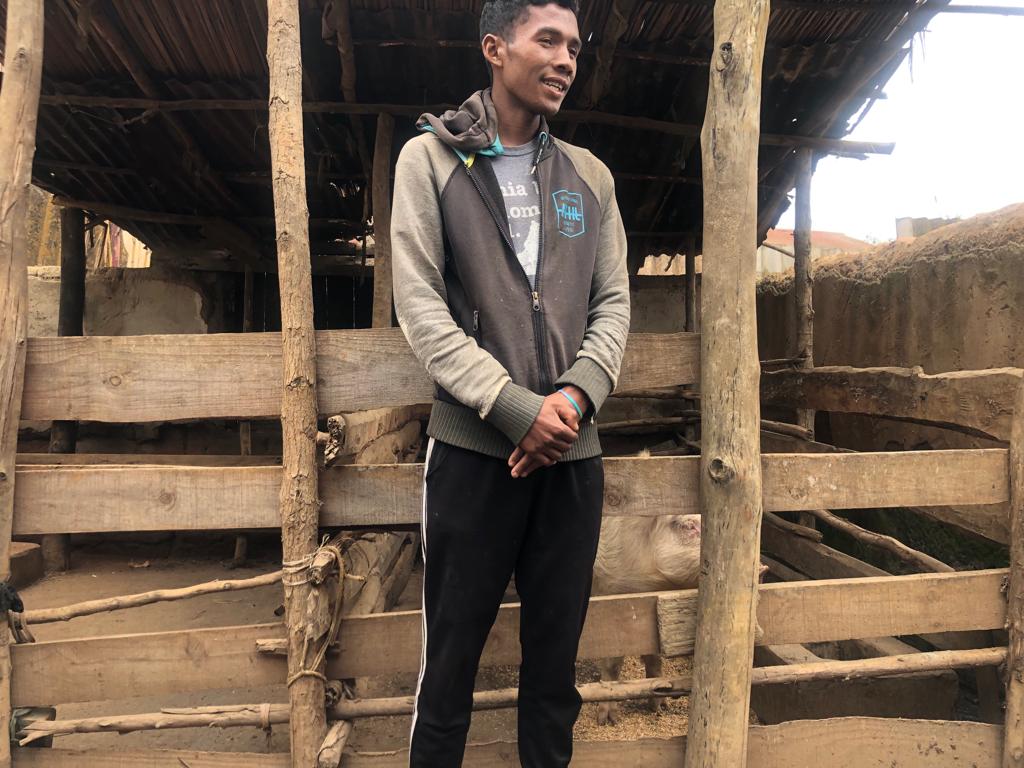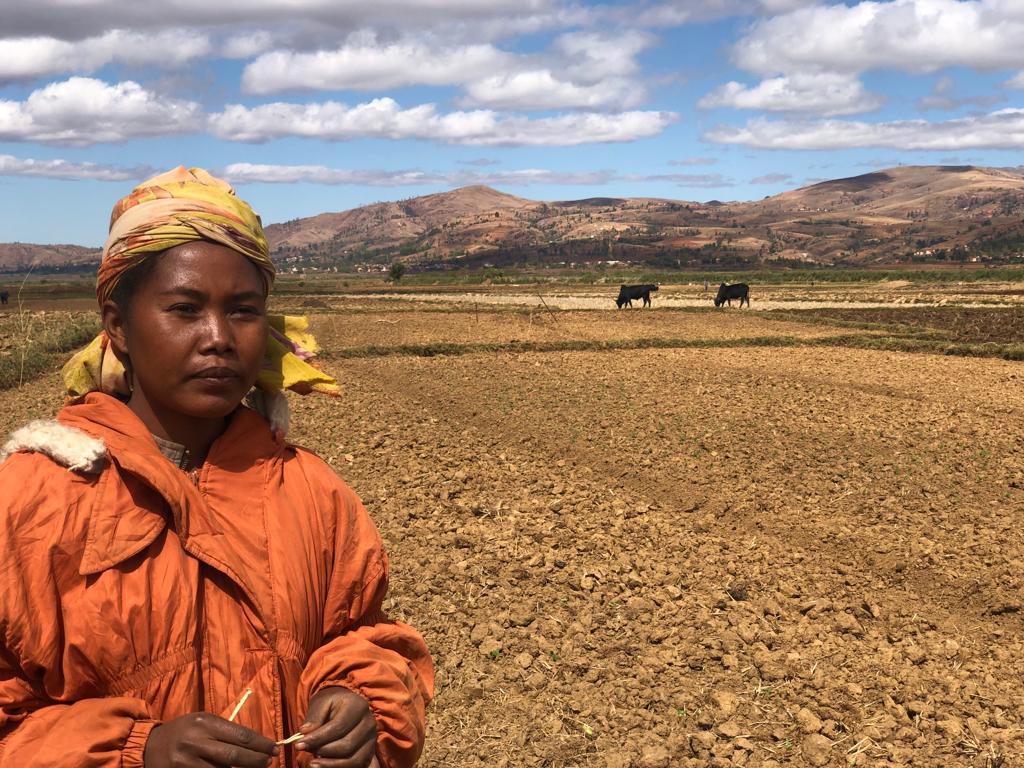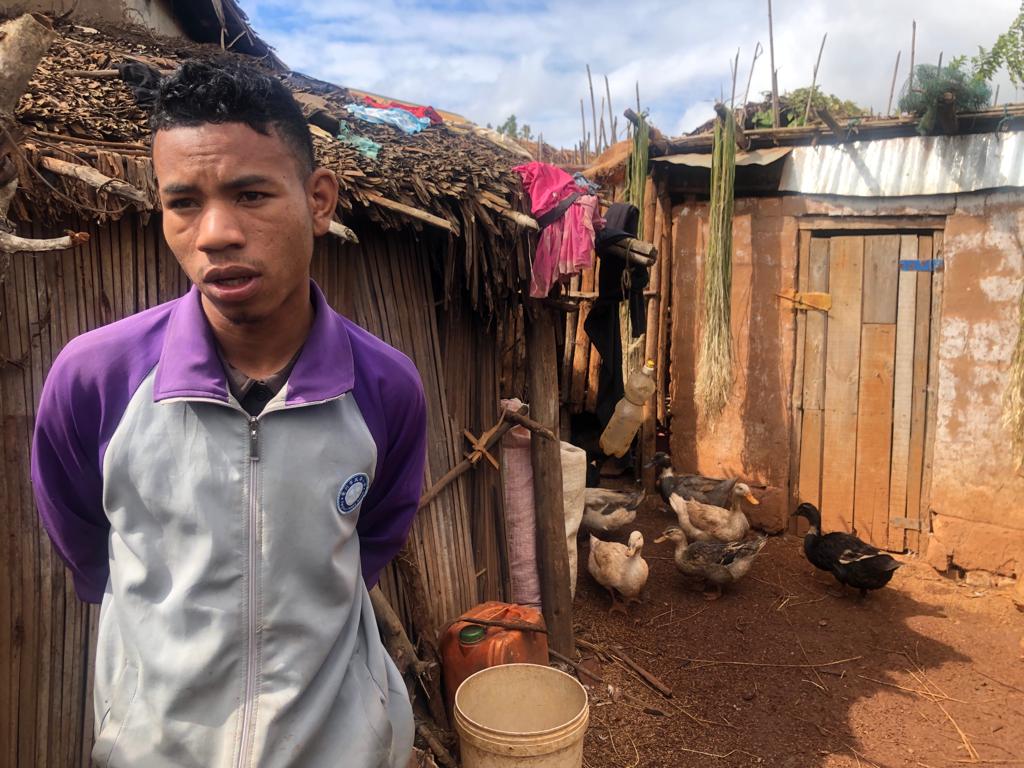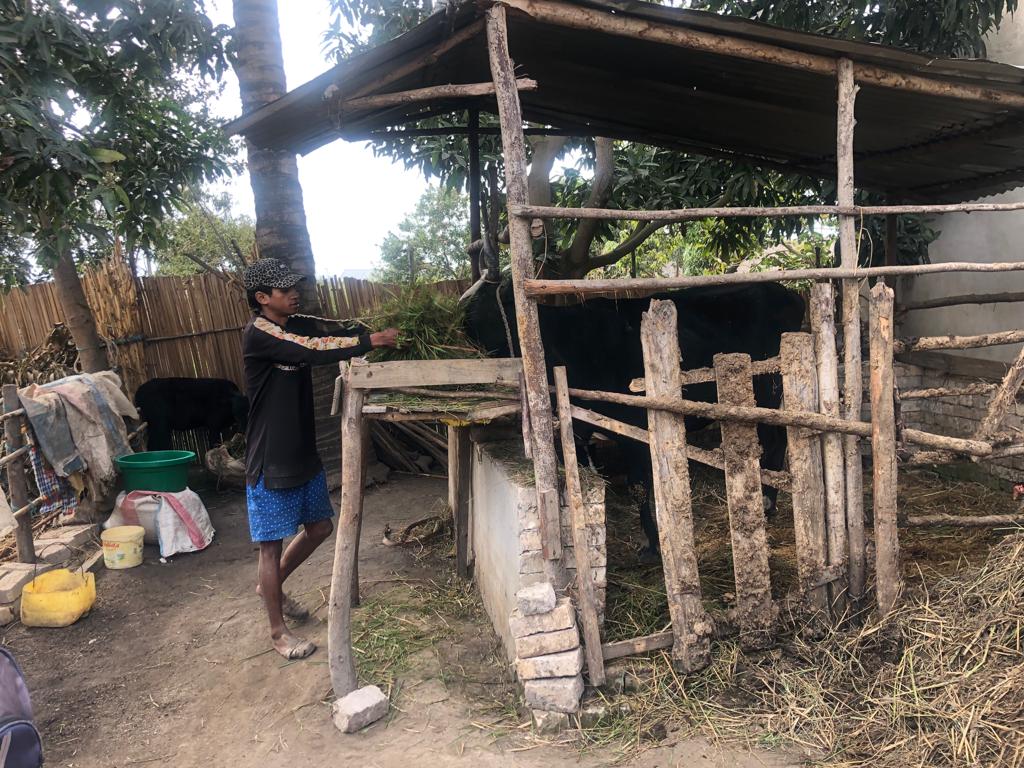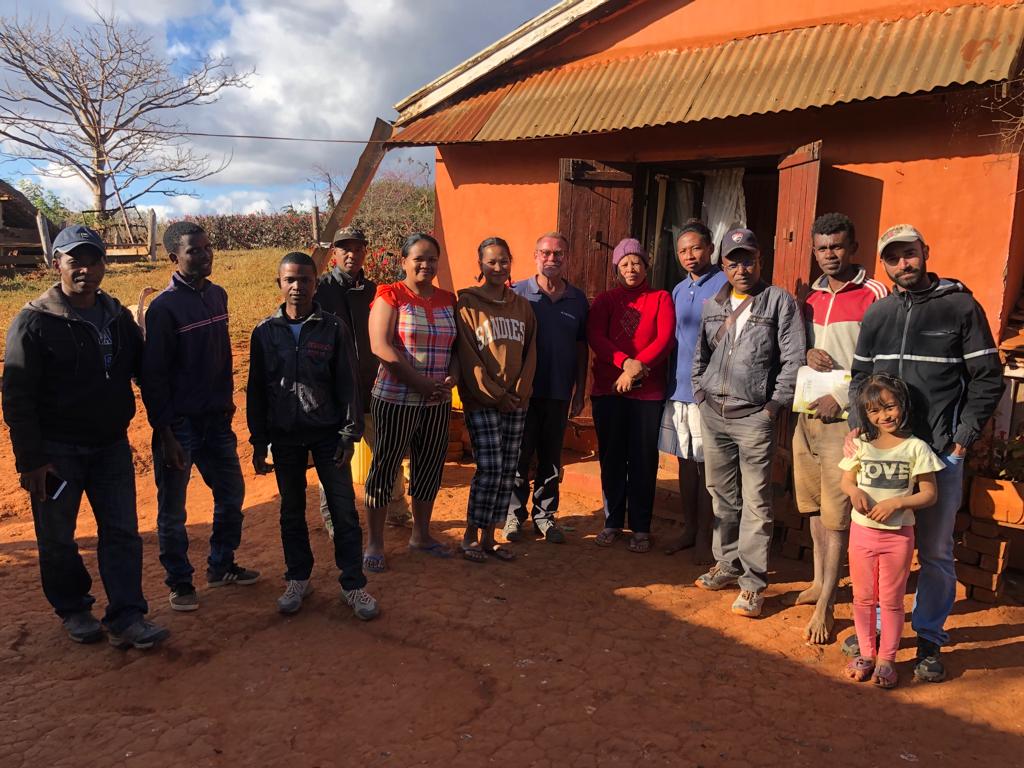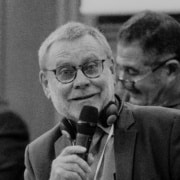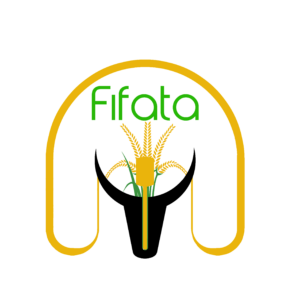
In the early 2000s, faced with the lack of initial agricultural training schemes for young rural people in Madagascar, Fert joined forces with the CNEAP (National Council for Private Agricultural Education) to support Fifata, a professional agricultural organization national level, in the establishment of an initial training system for young daughters and sons of farmers.
5 agricultural high school have been gradually created and are federated within Fekama, a member of the Fifata Group. These high school offer a 3-year training course, including 2 in boarding school and 1 in work-study, based mainly on practice thanks to educational exploitation adjoining the college.
Since 2009, a professional integration support system has been in place. Lasting 3 years, it consists of individual support by an agricultural adviser, the organization of groups between young people, a boost endowment and connection with technical and financial partners.
Paul-Henri DOUBLIER, farmer, administrator of Fert and president of the Agricultural High School of Nermont (Châteaudun – Eure-et-Loir) and of the CNEAP Center – Val de Loire, carried out a mission in Madagascar to support Fifata and Fekama in the adaptation of the system for the professional integration of young people leaving agricultural high school. In order to advise teams and professional managers in a relevant and realistic way, he went to meet several young graduates in order to collect their testimonies.
“I raise gasy chickens and sell chicks from the incubator my father made. With the money from the sale, I develop rice-fish farming (carp, tilapia) as well as a duck farm. I also have a large production of maize and I do mass selection. I want to be a young person whose college will be proud of and I want to become a member of the Board in 2025. My goal is to be the first producer of chicks and fingerlings in the region. I take interns and help my PO members by giving them chick credits so they can develop their gasy chicken farms. Today I think I earn more than a civil servant! »
“The fattening of my piglets allowed me to build my pigsty with accommodation for the caretaker. I produce soybeans and calculate my rations. I am also in great demand for vaccination. I am grateful to Fert and Fifata for the creation of the college because if I am there it is thanks to the training. I want to acquire even more techniques because I would like to become a recognized producer and do things in common with other farmers”.
“I started with 2 pigs to fatten. The money obtained allowed me to rent a rice field. I then bought 2 draft oxen and was able to buy a rice field. I had to stop breeding because of the insecurity. Now I focus on crops (rice, beans, potatoes). I had some difficult years because of the drought and then the floods. So I applied for a loan which I repaid this year because I had a good rice harvest. I am also a member of a FO.
I think I am different from other young people, I manage to organize myself, I no longer depend on my neighbors to cultivate my fields, I manage to do it alone with my husband and my father. My uncles are jealous of me because my agricultural activity is profitable. I earn as much as a civil servant and I am very involved in recruitment for the college and in activities in the villages.”
“Because of the insecurity in the area, I arrived at an empty farm. I developed an important pig farm and this allowed me to build my house. They stole my 2 dairy cows, 150 ducks, and I was not paid for the sale of 4 zebus. Today I am finally building a wall around my farm. I grow rice and beans. I have put money aside and am speculating on rice.
Young outgoing people can attract jealousy because they are leaders. I did the training in college to help my parents who had low technical ability. I did the FLP training (Farmer Leader Training) and FORMAPROD tutor (national program). This training allows me to learn how to keep my agricultural activity profitable despite the difficulties and to create an associative life. I am a member of a FO and I bought a rice huller with aid. I am also getting into traditional medicinal plants. All this helps me to hold on, I don’t give up!”
On the whole, the young people met during these exchanges are young people who set up thoughtful, innovative projects which evolve to achieve profitability, such as Kiady who is going to finance the development of his ponds for rice-fish farming with money from the sale of his chicks.
They are proactive and know how to seize opportunities. They have the ability to bounce back despite a difficult context, like Zoniana which does not give up and continues to innovate and renew itself despite the many losses caused by thefts and insecurity in its region.
Young people satisfied with the training and who continue to have needs:
- To solve problems encountered;
- To go deeper into the technique;
- To be able to develop their operations by training on new themes
There is still a long way to go but as Paul Henri DOUBLIER says:
“We are aware of the difficulties encountered in the field, but the regional POs and the Fifata Group must continue to reflect, with the support of Fert and the CNEAP, on how to strengthen the link with this pool of young leavers who are the future of the country. “

